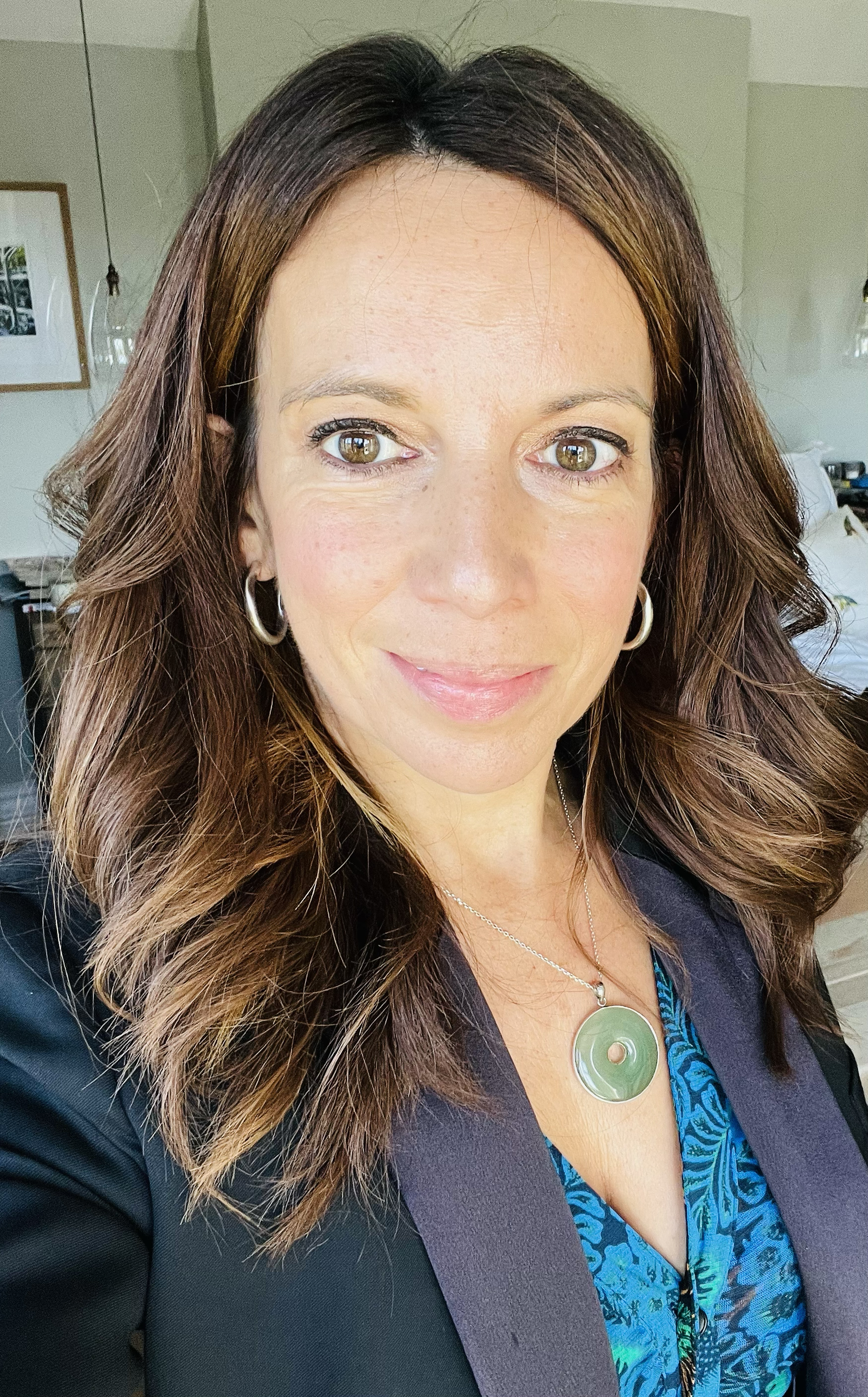'After a sudden stroke at 45, I wasn't sure I'd ever speak again. Now I'm back broadcasting F1' – Jennie Gow opens up on her battle
The TV, radio and podcast presenter shares the surprising advice that helped her recovery after a serious stroke left her unable to speak
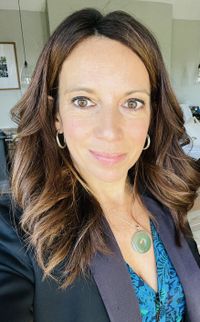
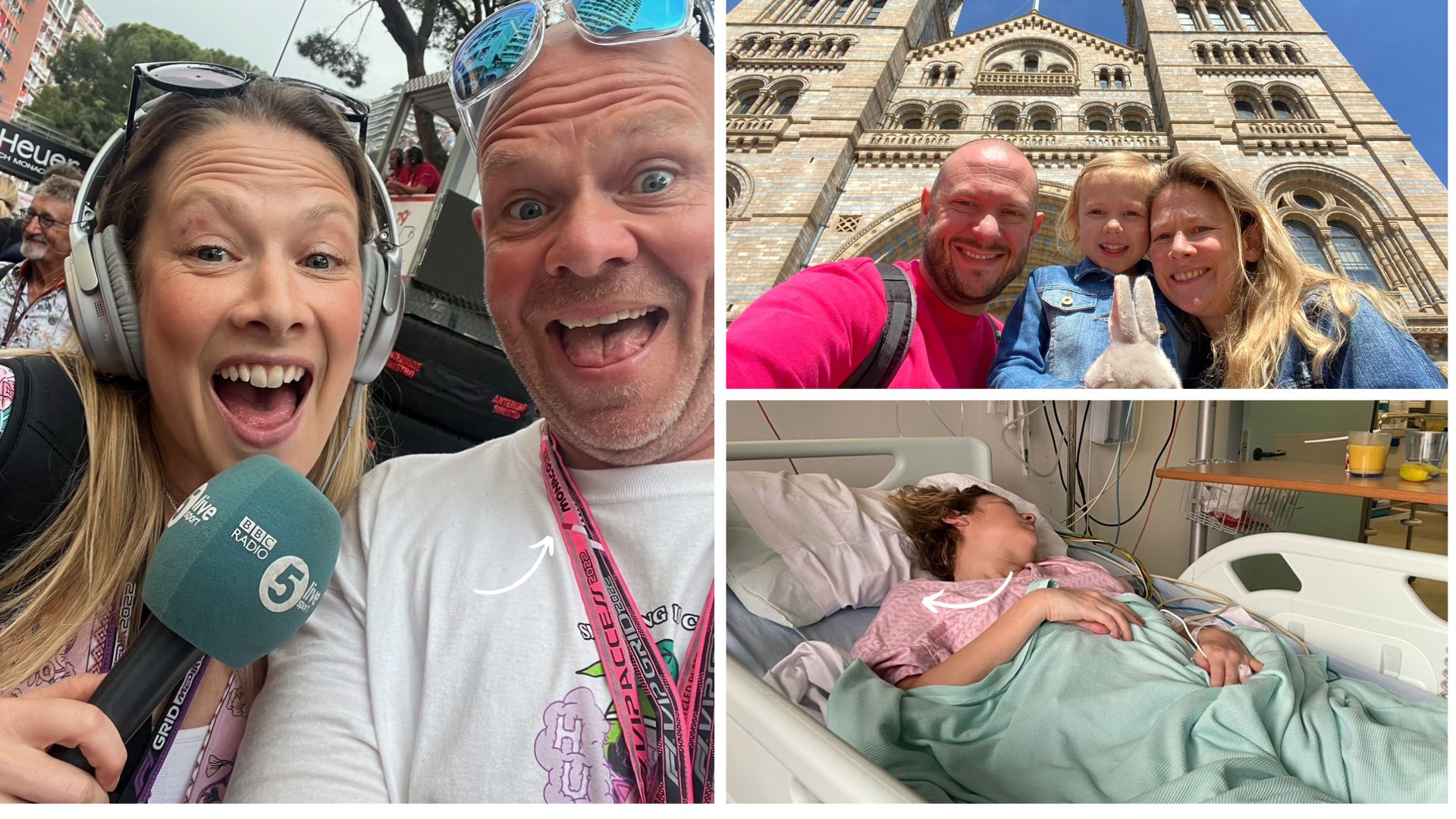
Sign up to our free daily email for the latest royal and entertainment news, interesting opinion, expert advice on styling and beauty trends, and no-nonsense guides to the health and wellness questions you want answered.
You are now subscribed
Your newsletter sign-up was successful
Want to add more newsletters?

Daily (Mon-Sun)
woman&home Daily
Get all the latest beauty, fashion, home, health and wellbeing advice and trends, plus all the latest celebrity news and more.

Monthly
woman&home Royal Report
Get all the latest news from the Palace, including in-depth analysis, the best in royal fashion, and upcoming events from our royal experts.

Monthly
woman&home Book Club
Foster your love of reading with our all-new online book club, filled with editor picks, author insights and much more.

Monthly
woman&home Cosmic Report
Astrologer Kirsty Gallagher explores key astrological transits and themes, meditations, practices and crystals to help navigate the weeks ahead.
“'You need to fight.' Those words, whispered by my husband Jamie as I came around from the operation to remove the clot in my brain, will always stick in my mind,” recalls Jennie Gow, who suffered a sudden stroke at the age of 45, while at the height of her career – having just completed the Formula 1 season filming for Drive to Survive on Netflix, and for the BBC.
Jennie continues, “I was still unclear about what had happened, but, lying there unable to speak and or move my right side, I quickly knew I had a huge fight ahead of me.
“My stroke occurred out of nowhere in December 2022. I had no health issues and was relaxing at home after Christmas with my husband and daughter, Isabelle, then aged six, when Jamie heard me collapse. Very quickly, he called for an ambulance which whisked the three of us to hospital in around 20 minutes.”

Jennie speaking to David Beckham in her role as a Formula 1 broadcaster
Urgent surgery
“My symptoms – a drooping face, inability to move my arms and being unable to speak – indicated I was experiencing a stroke. After initial tests, it became clear I needed a thrombectomy to remove the clot and I was rushed up to St Thomas’s Hospital in London. Thankfully, my father-in-law arrived to take Isabelle back to be with family, as the whole experience was extremely traumatic.
“The surgery went well but those five days in hospital were my lowest point. I still remember watching the fireworks over London out of the window on New Year’s Eve, feeling so desperately alone, isolated and helpless.
“To go from being a fully fit working mum to being brain-damaged and disabled overnight felt completely dehumanising. It was like being a baby again, but in an adult’s body. I had to relearn how to do everything from walking and talking to reading and writing.
“I couldn’t even tell the time, and the nurses even had to teach me how to eat and swallow. I was also unable to communicate at all, which was terrible, given that communication was my life.”
Sign up to our free daily email for the latest royal and entertainment news, interesting opinion, expert advice on styling and beauty trends, and no-nonsense guides to the health and wellness questions you want answered.
Finding my inner rage
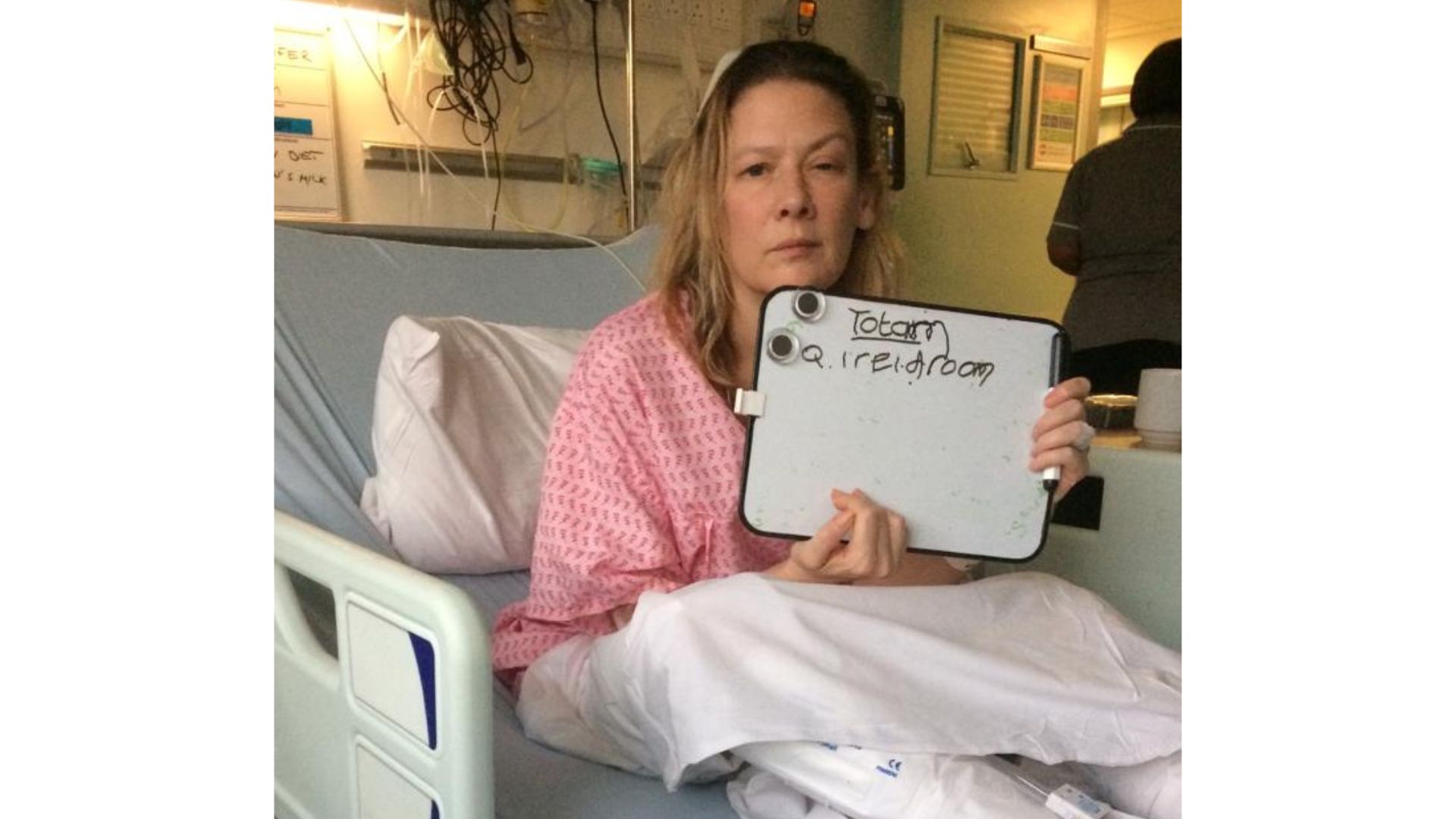
Jennie had to relearn how to write
“Some memorable advice from a wonderful nurse at St Thomas’ proved to be a turning point. She could see how frustrated I was and said my first goal should be just to make a noise, any noise; even just an ‘a’ or an ‘oh’ was progress.
“Her advice was to get angry. Rage is apparently the most vivid emotion one can tap into, and she encouraged me to use that rage to find words. It worked – if it wasn’t for her, I’m not sure I’d be speaking now.
“Every stroke is different so it’s impossible for medics to give an accurate prognosis of how, when or if a patient will recover. The affected brain cells cannot regenerate, so it’s all about rewiring your brain and developing new pathways.
“Whilst that was in some ways scary, I chose to cope by living minute by minute. In Formula 1, they often talk about marginal gains being key to success, and that’s the way I decided to look at my recovery.”
The long road back to health
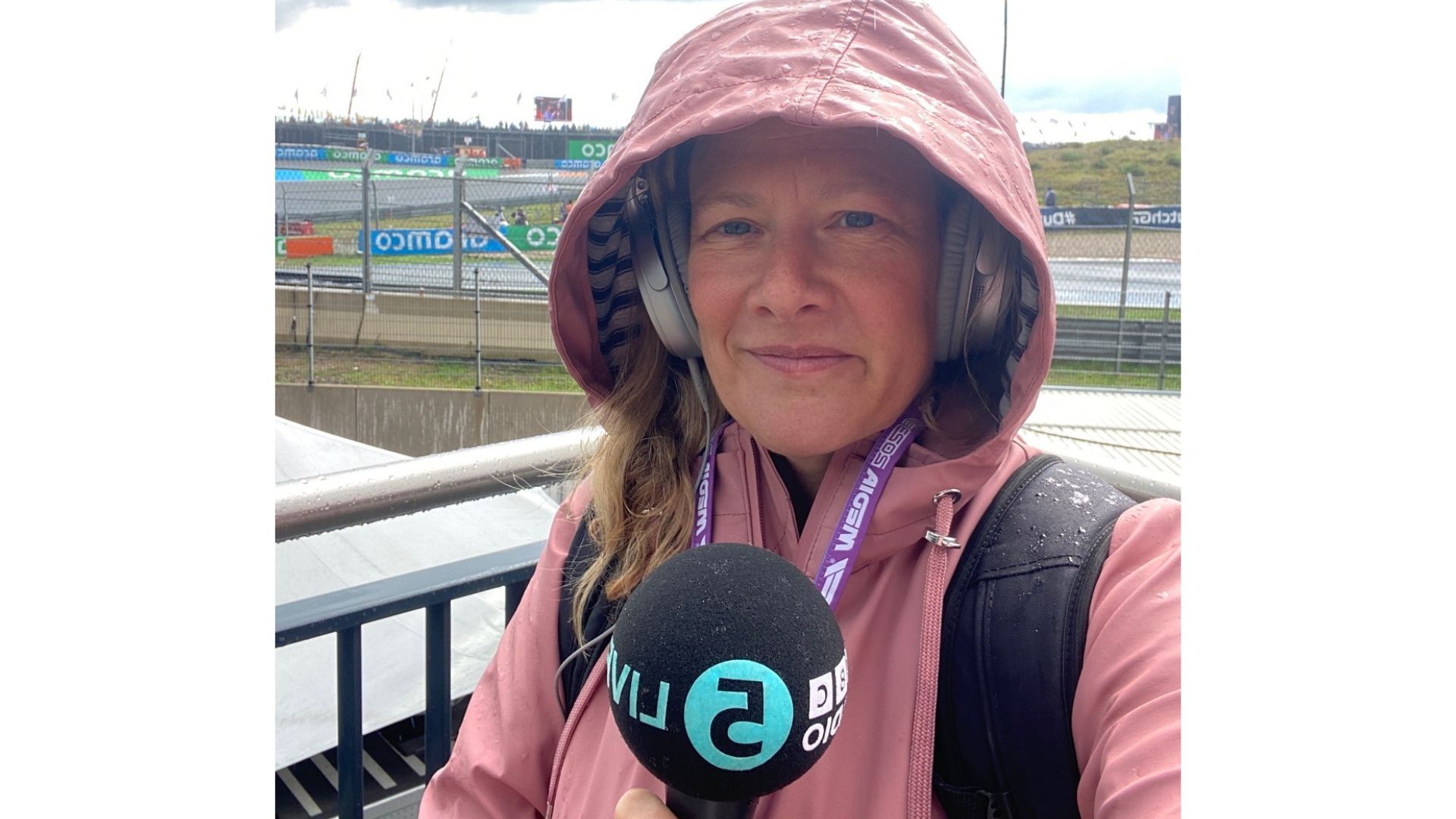
Jennie is now back on the F1 Circuit
“A week after the stroke, I was able to walk (albeit with a wobble) and make some basic sounds, but it was incredibly hard for people to understand what I was saying. I was so happy to get home but was incredibly frustrated when it took me 45 minutes simply to ask Jamie if he was okay.
“Jamie’s employer, Sky, was amazing, giving him six months off to look after Isabelle and me. That enabled me both to rest (as a brain injury requires a lot of sleep to aid recovery) and to get seriously into my rehabilitation alongside a wonderful team of therapists.
“Determined to do everything in my power to get back to the old me, for Isabelle as much as for myself, I worked so hard doing six hours of rehab every day when I wasn’t sleeping.
“Slowly, things started to improve and about three months after the stroke, and after much preparation, I managed my first 30-second link for the BBC’s F1:Chequered Flag podcast. By August 2023, I was delighted and nervous to get back to presenting live at the Dutch Grand Prix, where I was able to thank many of the drivers and teams for the incredible support I’d received.
“Writing my book How to Read F1 also helped with my therapy, forcing me to learn to type again and structure my thinking clearly.”
Returning to racing
A post shared by BBC 5 Live Sport (@5livesport)
A photo posted by on
“I’m now about 90% recovered, although I can hear my voice is not as it was, and I still struggle to find words occasionally. It’s great to be back in my happy place on the F1 circuit but weekends away like the Grand Prix in Monza do take it out of me.
“Strokes and the brain injuries they cause still seem a taboo subject, so I hope that by talking about my experience, I can raise awareness of both the symptoms and the importance of acting early. During a stroke, 32,000 brain cells are lost every second, causing irreversible damage, so getting rapid help makes a huge difference to someone’s chances of recovery.
“I’m forever thankful that Jamie and Isabelle got me in that ambulance so quickly. Together with the brilliant medics, they gave me the chance to get back to being the person I always was, doing the job I love. I’ll never take that for granted.”
Be Fast: How to recognise the signs of a stroke
The FAST test highlights the most common signs of a stroke in an easy-to-remember acronym.
If you, or someone else, experiences the following symptoms, call 999 right away.
- Face weakness – Can the person smile? Has their mouth or eye drooped?
- Arm weakness – Can the person raise both arms fully and keep them there?
- Speech problems – Can the person speak clearly and understand what you say? Is their speech slurred?
- Time – to call 999 if you see any one of these signs
While these are the most common symptoms, also look out for sudden weakness on one side of the body, difficulty finding words, blurred or loss of vision, sudden memory loss, dizziness, or a sudden or severe headache.
Ellie juggles being Mum to a chaotic blended family of seven with working as a lifestyle and travel writer. With a Masters in Psychology, Ellie is passionate about delving into what makes people tick and bringing to life their stories. Using the real-life experience of her own ‘modern family’ and their many adventures alongside her diverse range of personal interests, she’s recently covered topics as varied as the Taylor Swift phenomena, helping kids through divorce, Living Funerals and South African Safaris. Ellie contributes to publications such as Woman&Home, Woman, Woman’s Weekly, Good Housekeeping, The Times, Red Magazine, Travel Africa and Family Traveller.
You must confirm your public display name before commenting
Please logout and then login again, you will then be prompted to enter your display name.
